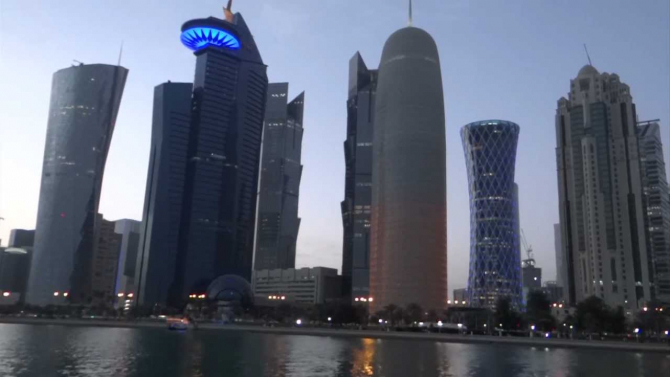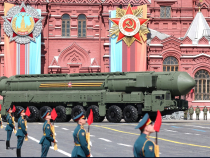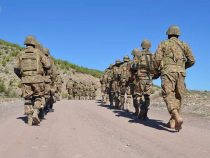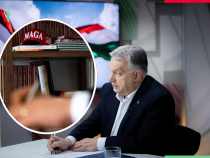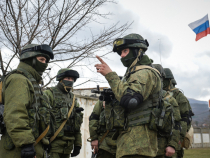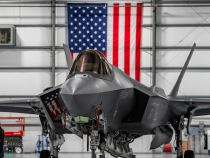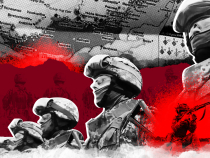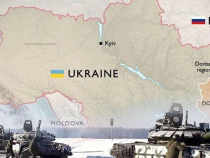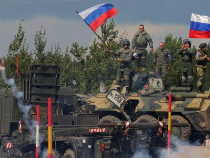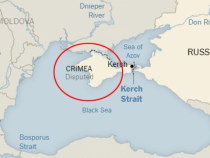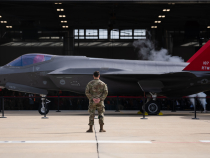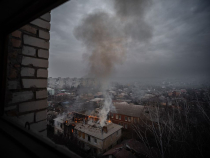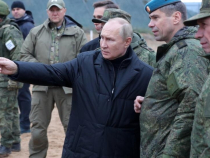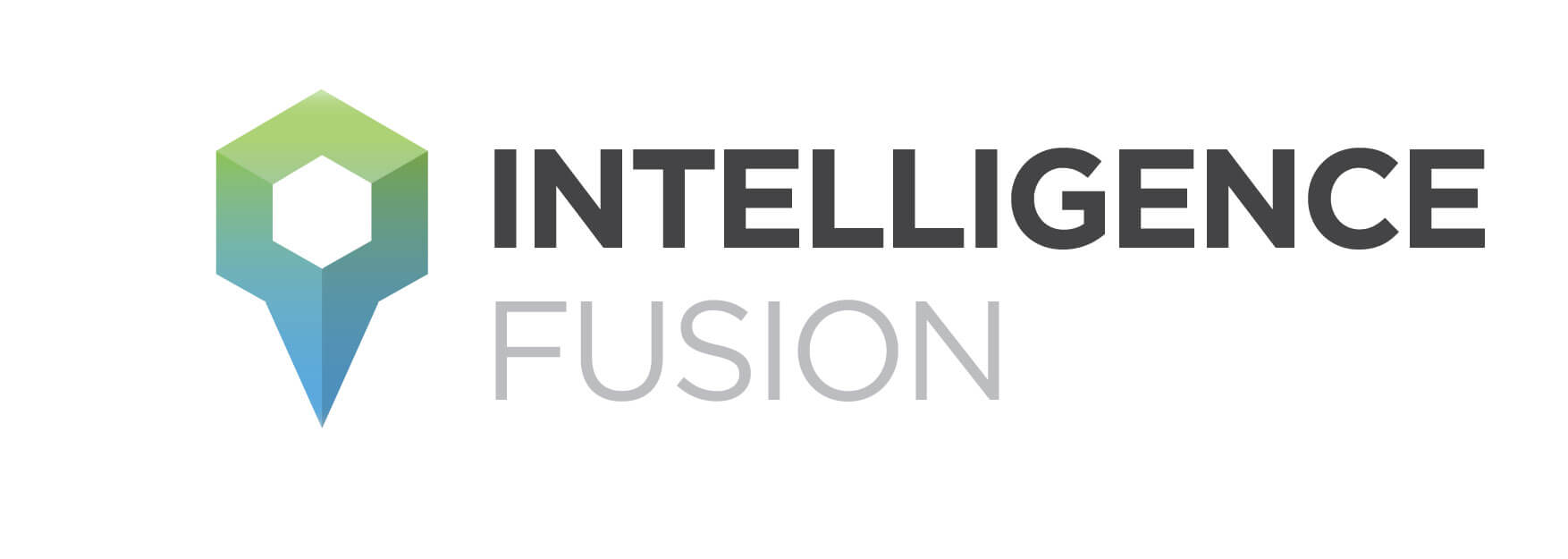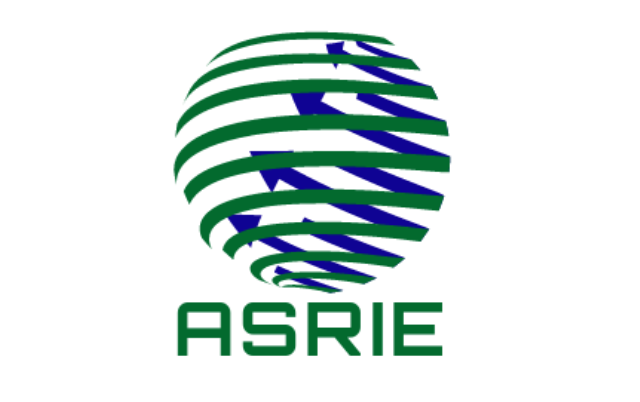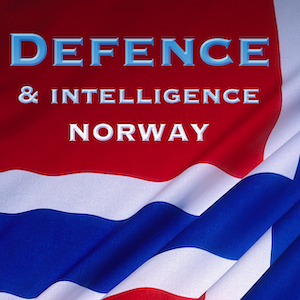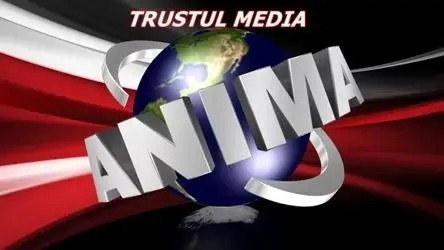With the 2018 World Cup in Russia behind it, the soccer world’s focus shifts to the 2022 tournament in Qatar. Politics and the Gulf’s internecine political and legal battles have already shaped debate about FIFA’s controversial awarding of World Cup hosting rights to Qatar. The battles highlight not only the sport’s dominance in the Middle East by autocratic leaders but also the incestuous relationship between politics and sports that is at the root of multiple scandals that have rocked the sports world for much of this decade and compromised good governance in international sports.
Three men symbolize the importance of soccer to Gulf autocrats who see the sport as a way to project their countries in a positive light on the international stage, harness its popular appeal in their cultural and public diplomacy campaigns, and leverage it as a pillar of their efforts to garner soft power: Qatari emir Sheikh Tamim bin Hamad Al Thani and his nemeses, United Arab Emirates Crown Prince Mohammed bin Zayed and Saudi sports czar, Turki al-Sheikh, one of Saudi Crown Prince Mohammed bin Salman’s closest associates.
To be sure, tension between Qatar and its Gulf detractors was spilling onto the soccer pitch long before the UAE, Saudi Arabia, Bahrain and Egypt took their opposition to Qatari policies to a new level with the imposition in June 2017 of a diplomatic and economic boycott of Qatar. Since then, debate about the Qatari World Cup has been further politicized with the Gulf crisis driving efforts to deprive Qatar of economic and soft power benefits it derives from its hosting of the tournament, if not of the right to host the mega-sports event. The UAE-Saudi efforts took on added significance as Qatar and its detractors settled in for the long haul. Saudi Arabia, the UAE, Bahrain and Egypt will likely face difficult choices if the Gulf crisis persists when the World Cup, the first such mega-tournament to be held in the Middle East, kicks off in Doha in late 2022.
Difficult choices
The choice would involve potential political risk. It would be between maintaining the boycott that has cut off all air, sea and land links between Qatar and its detractors at the expense of fans in a soccer-crazy part of the world in which little evokes the deep-seated emotions associated with religion and football or effectively breaching the embargo to evade political backlash and ensure that supporters have access to a sports milestone in the region’s history. The starkness of the boycotting states’ dilemma would be magnified if any one of them were to qualify for the Qatar World Cup and would be enhanced if they were to play the host country or, for example, Iran.
The issue of ability to attend is magnified by expectations that the demography of fans attending the World Cup in Qatar may very well be a different from that at past tournaments. Qatar is likely to attract a far greater number of fans from the Middle East as well as Africa and Asia. The Asian Football Confederation’s Competition Committee has already urged governments to exempt football teams from travel bans and would almost certainly do the same for fans.
As a result, the UAE-Saudi effort to undermine the Qatar World Cup is about more than seeking to deliver a body blow to Qatar. It is also about avoiding being further tied up into knots in an anti-Qatari campaign that has so far failed to break the Gulf state’s resolve, force it to concede, and garner international support. The campaign is multi-pronged and doesn’t shy away from violating laws as is evident in Saudi bootlegging to deprive beIN, the sports franchise of Qatar’s state-owned Al Jazeera television network, of the fruits of acquired rights to broadcast World Cup tournaments and European competitions at the risk of being penalized and/or taken to court by the likes of FIFA and the English Premier League. Saudi media reports that the government has launched an anti-piracy campaign, confiscating more than 4,000 illegal receivers that hacked beIN failed to put an end to the bootlegging.
Signaling the political importance that men like the crown princes and Sheikh Tamim attribute to sports, a former top UAE security official, Lt. Gen. Dhahi Khalfan, suggested that the only way to resolve the Gulf crisis would be for Qatar to surrender its World Cup hosting rights. "If the World Cup leaves Qatar, Qatar's crisis will be over ... because the crisis is created to get away from it," Mr. Khalfan said.
Mr. Khalfan spoke at a time that leaked documents from the email account of Yousef Al-Otaiba, the UAE ambassador in Washington and a close associate of the country’s crown prince, revealed a UAE plan to undermine Qatar’s currency by manipulating the value of bonds and derivatives. If successfully executed, the plan would have allowed Qatar’s distractors to argue that the Gulf state’s financial problems called into question its ability to organize the World Cup.
Serving national interests
Mr. Al-Sheikh, the chairman of the kingdom’s General Sport Authority, makes no bones about harnessing sports to serve the kingdom’s interests. With a career in security rather than sports, he was unequivocal in his assertion on the eve of Saudi Arabia’s debut in the 2018 World Cup in Russia that he made decisions based on what he deemed “Saudi Arabia’s best interest,” reaffirming the inextricable relationship between sports and politics.
Barely 24 hours before the World Cup’s opening match, Saudi Arabia made good on Mr. Al-Sheikh’s assertion that the kingdom’s international sports policy would be driven by former US President George W. Bush’s post 9/11 principle of “you are either with us or against us.”
With Morocco’s bid for the 2026 World Cup in mind, Mr. Al-Sheikh had warned that "to be in the grey area is no longer acceptable to us. There are those who were mistaken in their direction … If you want support, it'll be in Riyadh. What you're doing is a waste of time…," Mr. Al-Sheikh said. Mr. Al-Sheikh was referring to Morocco’s refusal to join the anti-Qatari campaign. Adopting a Saudi Arabia First approach, Mr. Al-Sheikh noted that the United States “is our biggest and strongest ally.” He recalled that when the World Cup was played in 1994 in nine American cities, the US “was one of our favourites. The fans were numerous, and the Saudi team achieved good results.” Mr. Al-Sheikh was maneuvering at the same time to ensure that the kingdom has greater say in international soccer governance, including issues such as the fate of the Qatari World Cup and a push to extend international isolation of Iran to the realm of sports. To do so, Saudi Arabia backed a proposal to speed up the expansion of the World Cup to 48 teams from 32, which is scheduled to kick off in 2026, by making it already applicable to the 2022 World Cup. Saudi Arabia hopes that the expansion would significantly complicate Qatari preparations for the event. Implementing the expansion in 2022 would strengthen UAE and Saudi efforts to petition FIFA to force Qatar to agree to co-hosting of the World Cup by other Gulf states, a proposal that was incorporated in the UAE plan to undermine Qatar’s currency.
In an indication of things to come, the Asian Football Confederation (AFC) in early 2018 thwarted a UAE-Saudi attempt to get Asian tournament matches that were scheduled to be hosted by Qatar moved to a neutral venue. The AFC warned the two countries that they would be penalized if they failed to play in Doha or host Qatari teams.
Mr. Al-Sheikh’s moves were part of a two-pronged Saudi-UAE effort. Global tech investor Softbank, which counts Saudi Arabia and the UAE among its largest investors, is believed to be behind a $25 billion proposal embraced by FIFA president Gianni Infantino to revamp the FIFA Club World Cup and launch of a Global Nations League tournament. If approved, the proposal would give Saudi Arabia a significant voice in global soccer governance. Complimenting the Saudi FIFA bid is an effort to expand the kingdom’s influence in the 47-nation AFC, the largest of the world soccer body’s constituent regional elements. To do so, Saudi Arabia unsuccessfully tried to create a new regional bloc, the South West Asian Football Federation (SWAFF), a potential violation of FIFA and AFC rules. The federation would have been made up of members of both the AFC and the Amman-based West Asian Football Federation (WAFF) that groups all Middle Eastern nations except for Israel and is headed by Jordanian Prince Ali Bin Al-Hussein, a prominent advocate of soccer governance reform.
The initiative fell apart when the Asian members of SWAFF walked out in October 2018 in the wake of the killing of journalist Jamal Khashoggi in the Saudi consulate in Istanbul. The killing could also jeopardize Saudi efforts to gain control of the AFC with the Al-Sheikh-backed candidacy of Saudi Football Federation chief Adel Ezzat, who resigned in August 2018 to run for the office..
Benefits outstrip reputational risk
Mr. Al-Sheikh and his boss, Prince Mohammed, share with the crown prince’s UAE counterpart and namesake, a belief that the public diplomacy and soft power fruits of harnessing sports outstrip reputational risks. Simon Pearce, Abu Dhabi’s director of strategic communications and a director of Manchester City, the British club bought by UAE Crown Prince Mohammed’s brother but controlled by the de facto Emirati ruler’s men, said as much in leaked emails to Mr. Al-Otaiba, the UAE ambassador in Washington. The emails discussed the UAE’s registration of a new soccer club, New York City Football Club, as the United States’ Major League Soccer newest franchise. Mr. Pearce argued that Abu Dhabi’s interests in the US political environment are best served by associating New York City FC with City Football Group, the Abu Dhabi government’s soccer investment vehicle, rather than the government itself to evade criticism stemming from the Emirates’ criminalization of homosexuality, its less than stellar record on women’s rights and its refusal to formally recognize Israel despite maintaining close security and commercial relations with the Jewish state.
The UAE’s sports-related investments, guided by the crown prince, much like the acquisition of important Qatari sports stakes on the behest of Sheikh Tamim also give Gulf states political leverage and create additional commercial opportunity. The investments constitute the flip side of large amounts of Gulf money being channeled to influential think tanks, particularly in Washington. In a series of notes in 2012, Mr. Pearce advised Prince Mohammed, a man obsessed with perceived threats posed by any form of political Islam and a driving force in the campaign against Qatar, to tempt than British prime minister David Cameron to counter what he described as Islamist infiltration of the BBC’s Arabic service in exchange for lucrative arms and oil deals.
To illustrate the UAE and Qatar’s sway in European soccer, Nicholas McGeehan, an independent researcher and former Human Rights Watch executive focussed on the region, looked at recent bookies odds for the Champions League. Abu Dhabi-owned Manchester City was the favourite followed by Qatar’s Paris Saint-Germain. Third up was Bayern Munich, whose shirts are sponsored by Qatar, fourth was Barcelona, which recently ended a seven-year sponsorship deal with Qatar, and fifth Real Madrid that sold the naming rights to its new stadium to Abu Dhabi.
Saudi and UAE public relations efforts to generate public pressure for a deprival of Qatari hosting rights were at times mired in controversy. The launch in May of the Foundation for Sports Integrity by Jamie Fuller, a prominent Australian campaigner for a clean-up of global soccer governance, backfired amid allegations of Saudi and UAE financial backing and Mr. Fuller’s refusal to disclose his source of funding.
Saudi and UAE media together with UK tabloid The Sun heralded the launch in a poche London hotel that involved a reiteration of assertions of Qatari wrongdoing in its successful World Cup bid. Media like Abu Dhabi’s The National and Saudi Arabia’s Al Arabiya projected the launch as pressure on FIFA to deprive Qatar of its hosting rights. “It is no secret that football’s governing body is rotten to the core. (FIFA) will rightly come under renewed pressure to strip Qatar of the competition and carry out an internal investigation in the wake of the most recent allegations. The millions of fans eagerly anticipating 2022’s festival of football deserve better,” The National said. Saudi-owned Ash-Sharq Al Awsat newspaper reported that a June 2018 FIFA Congress would hold a re-vote of the Qatari hosting. The Congress didn’t.
Qatar remains vulnerable
Despite so far successfully having defeated efforts to deprive it of its hosting rights, Qatar remains vulnerable when it comes to the integrity of its winning bid. The bid’s integrity and Sheikh Tamim’s emphasis on sports as a pillar of Qatari soft power is at stake in legal proceedings in New York and Zurich involving corruption in FIFA and potential wrongdoing in the awarding of past World Cups. Qatar has suffered reputational damage as a result of the question marks even if the Gulf crisis has allowed it to enhance its image as an underdog being bullied by the big boys on the block. To Qatar’s credit, it has introduced reforms of its controversial kafala or labour sponsorship system that could become a model for the region. In doing so, it cemented the 2022 World Cup as one of the few mega-events with a real potential of leaving a legacy of change. Qatar started laying the foundations for that change by early on becoming the first and only Gulf state to engage with its critics, international human rights groups and trade unions.
Even so, Qatar initially suffered reputational damage on the labour front because it was relatively slow in embracing and implementing the reforms. Qatar’s handling of the Gulf crisis suggests that it has learnt from the failure of its initial response to criticism of its winning 2022 bid when it acted like an ostrich that puts its head in the sand, hoping that the storm will pass only to find that by the time it rears its head the wound has festered, and it has lost strategic advantage.
The integrity issue remains Qatar’s weak point. For activist critics of the awarding of hosting rights to Qatar, there are two questions. One is, who do they want to get in bed with? Qatar’s detractors, the United Arab Emirates and Saudi Arabia hardly have stellar human and labour rights records. If anything, their records are worse than that of Qatar, which admittedly does not glow.
The second question critics have to ask themselves is how best to leverage the World Cup, irrespective of whether the Qatari bid was compromised or not. On the assumption that it may have been compromised, the question is less how to exact retribution for a wrong doing that was common practice in global football governance. Leveraging should focus on how to achieve a fundamental reform of global sports governance that has yet to emerge eight years into a crisis that was in part sparked by the Qatar World Cup. This goes to the heart of the fact that untouched in efforts to address the governance crisis is the corrupting, ungoverned, and incestuous relationship between sports and politics.
Siamese twins: sports and politics
The future of the Qatar World Cup and the Gulf crisis speaks to the pervasiveness of politics in sports. The World Cup is political by definition. Retaining Qatar’s hosting rights or depriving the Gulf state of the right to host the tournament is ultimately a choice with political consequences. As long as the crisis continues, retaining rights is a testimony to Qatar’s resilience, deprival would be a victory for its detractors.
As a result, the real yardstick in the debate about the Qatari World Cup should be how the sport and the integrity of the sport benefit most. And even then, politics is never far from what the outcome of that debate is. Obviously, instinctively, the optics of no retribution raises the question of how that benefits integrity. The answer is that the potential legacy of social and economic change that is already evident with the Qatar World Cup is more important than the feel-good effect of having done the right thing with retribution or the notion of setting an example. Add to that the fact that in current circumstances, a withdrawal of hosting rights would likely be interpreted as a victory of one side over the other, further divide the Arab and Muslim world, and enhance a sense among many Muslims of being on the defensive and under attack.
The silver lining in the Gulf crisis may be the fact that it has showed up the fiction of a separation of sports and politics. FIFA, the AFC, and the Confederation of African Football (CAF), seeking to police the ban on a mixing of sports and politics, have discovered that it amounts to banging their heads against a wall. Despite their attempts to halt politics from subverting Asian tournaments, domestic and regional politics seeped into the game via different avenues. As a result, FIFA and its regional confederations have been tying themselves up in knots. In a bizarre and contradictory sequence of events at the outset of the Gulf crisis, FIFA president Infantino rejected involving the group in the dispute by saying that “the essential role of FIFA, as I understand it, is to deal with football and not to interfere in geopolitics." Yet, on the same day that he made his statement, Mr. Infantino waded into the crisis by removing a Qatari referee from a 2018 World Cup qualifier at the request of the UAE. FIFA, beyond declaring that the decision was taken “in view of the current geopolitical situation,” appeared to be saying by implication that a Qatari by definition of his nationality could not be an honest arbiter of a soccer match involving one of his country’s detractors. In FIFA’s decision, politics trumped professionalism, no pun intended.
Similarly, the AFC was less principled in its stand towards matches pitting Saudi Arabia and Iran against one another. Iranian club Traktor Sazi was forced in February to play its home match against Al Ahli of Jeddah in Oman. It wasn’t clear why the AFC did not uphold the principle it imposed on Qatar, the UAE and Saudi Arabia in the case of Iran. “Saudi teams have been able to select host stadiums and cities, and Saudi teams will host two Iranian football representatives in the UAE and Kuwait. In return, Iranian football representatives should be able to use their own rights to choose neutral venues,” said Mohammad Reza Saket, the head of the Islamic Republic of Iran’s Football Federation in a letter to the AFC.
Soccer governance bodies have long struggled to maintain the fiction of a separation in a trade-off that gave regulators greater autonomy and created the breeding ground for widespread corruption while allowing governments and politicians to manipulate the sport to their advantage as long as they were not too blatant about it. The limits of that deal are currently being defined in the Middle East, a region wracked by conflict where virtually everything is politicized.
Dr. James M. Dorsey is a senior fellow at the S. Rajaratnam School of International Studies, co-director of the University of Würzburg’s Institute for Fan Culture
DefenseRomania App
Fii primul care află cele mai importante știri din domeniu cu aplicația DefenseRomania. Downloadează aplicația DefenseRomania de pe telefonul tău Android (Magazin Play) sau iOS (App Store) și ești la un click distanță de noi în permanență
Fiți la curent cu ultimele noutăți. Urmăriți DefenseRomania și pe Google News
